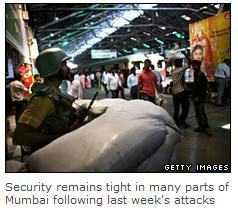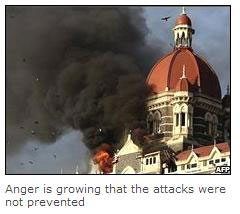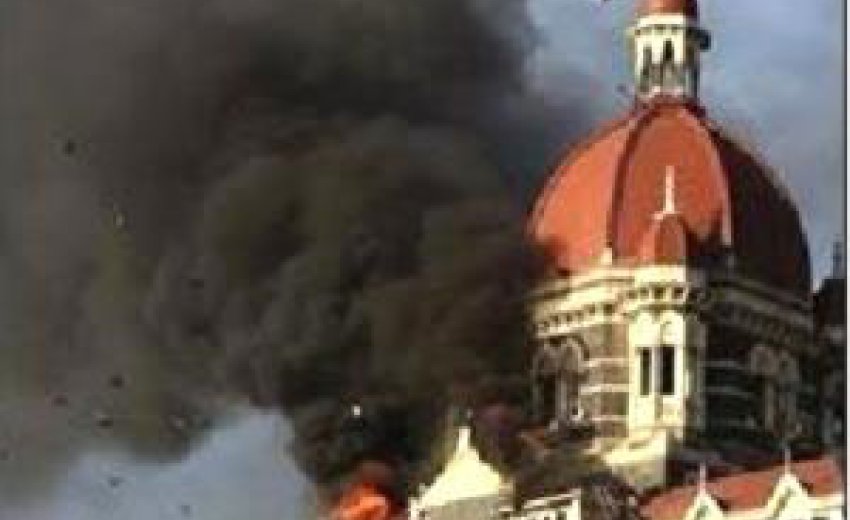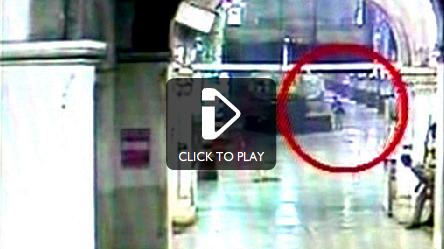 The US warned India about a possible threat at least a month before last week's Mumbai attacks, US media have quoted unnamed officials as saying.
The US warned India about a possible threat at least a month before last week's Mumbai attacks, US media have quoted unnamed officials as saying.
The Director of National Intelligence, Mike McConnell, has meanwhile implied he suspects the Pakistan-based group Lashkar-e-Toiba was responsible.
Islamabad has denied Indian allegations that the attackers, who killed almost 200 people, had Pakistani links.
US Secretary of State Condoleezza Rice is due in Delhi to discuss the crisis.
She has urged India and Pakistan to remain in contact and work together to find those behind the "horrible attack".
Ms Rice said all parties should "co-operate fully, and Pakistan in particular needs to co-operate fully and transparently".
Seaborne attack
On Tuesday, a US official told the Associated Press that the Indian authorities had been told of an apparent plot to launch an attack on Mumbai from the sea.
An armed policeman guards the Victoria Terminus station in Mumbai (2 November 2008)
Security remains tight in many parts of Mumbai following last week's attacks
Mumbai police chief Hassan Gafoor later appeared to confirm the report by saying that there had been a known threat to at least some of the locations targeted, including the Taj Mahal Palace hotel.
Security authorities had "had an alert that hotels like Taj could be exposed to such danger", he told a news conference.
ABC News also quoted Indian officials as saying that after receiving the US warning, they also intercepted a satellite phone message on 18 November warning of a seaborne attack on Mumbai.
The city had been on high alert, but security measures at the targeted hotels had recently been relaxed, the US television network said.
ABC also reported that the Indian authorities had seized a mobile phone SIM card belonging to the attackers, which they said had led to a "treasure trove" of contacts and information.
One of the gunmen, named as Azam Amir Qasab, survived and is in police custody. Police have said he is "certainly" from Pakistan. The Indian media have said he is linked to the militant group Lashkar-e-Toiba, but the group has denied responsibility.
The Indian media have said he is linked to the militant group Lashkar-e-Toiba, but the group has denied responsibility.
Although he did not mention Lashkar-e-Toiba by name, the US Director of National Intelligence said the militant group the US suspects carried out the Mumbai attacks was the same one that was behind the train blasts in the city in July 2006 that killed 186 people.
"The same group that we believe is responsible for Mumbai had a similar attack in 2006 attack on a train and killed a similar number of people," Mr McConnell said in a speech at at Harvard University. "Go back to 2001 and it was an attack on the parliament."
Lashkar-e-Toiba was blamed by the Indian government for the 2006 train bombings, along with the Students' Islamic Movement of India (Simi), and for the parliament attack, in which 12 people died.
'Resolve'
Correspondents say the alleged US intelligence warning is likely to add to growing public anger that they were not prevented.
India's home minister and the chief and deputy chief ministers of Maharashtra state have all resigned.
Chief of the Naval Staff Admiral Suresh Mehta said on Tuesday that failures needed to be "taken stock of", but he added that the government's response was "going to be quite adequate".
Foreign Minister Pranab Mukherjee said a military response was not under consideration but that if Pakistan did not act the bilateral peace process would be at risk.
India has also asked Islamabad to hand over 20 fugitives from Indian law it believes are hiding in Pakistan. It is not clear what, if any, links those on the list had to the Mumbai attacks.
Indian media reports say the names include alleged underworld don Dawood Ibrahim, wanted in connection with bombings in Mumbai in 1993, and Muslim cleric Maulana Masood Azhar who was freed from jail in India in exchange for passengers on a hijacked plane in 1999.
Islamabad has not responded directly to the request but on Tuesday offered India a joint investigation into the attacks.
WATCH VIDEO BELOW

